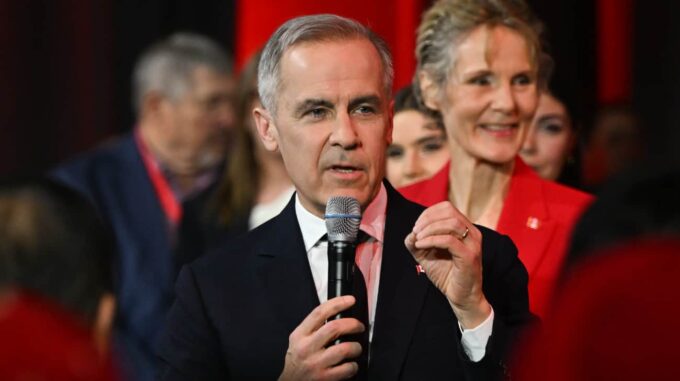After the recent parliamentary elections, in which his Liberal Party secured a decisive victory, Canada’s Prime Minister, Mark Carney, made a high-profile statement regarding the country’s future foreign policy direction

During his speech in the capital city, he addressed both Ukrainian and global audiences, announcing that the historic phase of the old relations between Canada and the United States has effectively come to an end. Carney’s statement was a response to significant changes in bilateral relations, which had deteriorated during Donald Trump’s presidency. Known for his ambiguous and sometimes provocative remarks, Trump recently declared the "probable status of Canada as the 51st state," sparking a wave of criticism and concern within Canadian circles. Additionally, Trump initiated a so-called trade war, imposing tariffs on imported goods, which conflicted with long-standing policies of mutually beneficial trade. According to Carney, all these developments have led to a transition of Canada-U.S. relations into a new phase. In his speech, the Prime Minister emphasized that the open global trading system, which has served as the foundation for Canada’s economic development and stability since the end of World War II, has undergone significant changes. He stressed that the country can no longer rely solely on its historical alliance built on deep integration with the U.S., as this model has proven to be unequal and unstable under the new global political realities. Carney declared that it is time to rethink the country's foreign policy approach. “Our old relations with the United States, based on unquestioning and comprehensive integration, have ended. The world order we are accustomed to is changing significantly. Therefore, Canada must seek new pathways and partnerships to safeguard its national interests and prosperity,” he said. This statement elicited reactions from the public and political circles, as it is associated with the possibility of the country moving toward greater independence in foreign policy and pursuing new strategic partners. Analysts note that, following his electoral victory, Carney aims not only to strengthen internal stability but also to realign external relations to reduce dependence on the U.S. and adapt to the new global order. At the same time, this announcement signals a certain shift: with a new government in Canada, the country is attempting to respond to emerging challenges and shape a more independent and stable foreign policy amidst rapid global changes. The situation surrounding the U.S. in the coming months could influence Canada’s future diplomatic vector, making the country an even more active and autonomous player on the world stage.

